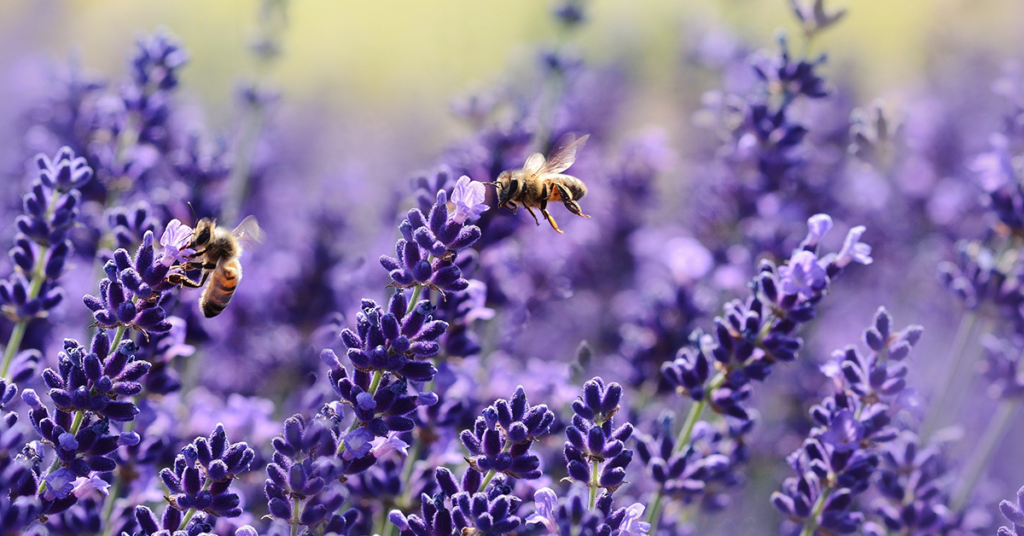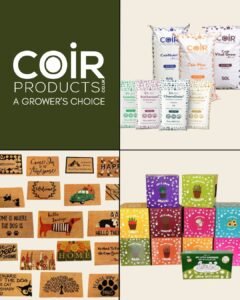
From plastics to purpose: choose greener with CoirProducts this July
It starts small. A plastic bag picked up on the way home. A plastic pot that seemed too convenient to resist. A bit of clingfilm,

July 10 is ‘Don’t Step on a Bee Day’. Bees play a big part in our ecosystems. They are great pollinators, they help transfer pollen between flowering plants, thus helping plants grow, breed, and produce food. But some species of bees are being threatened such as by the destruction of their habitats.
‘Don’t Step on a Bee Day’ is held to raise awareness on the important work that bees do, and the urgent need to protect the bees. Read our blog post to learn more about why bees are important and how you can make little changes in your garden to help protect bees.
Bees are the perfect pollinators
Bees have been around for millions of years. While there are other methods of pollination such as by the wind, other insects, or birds, wild bees are often considered vital as they are able to pollinate on a much larger scale.
As stated by the Food and Agriculture Organisation (FAO), “about two-thirds of the crop plants that feed the world rely on pollination by insects or other animals to produce healthy fruits and seeds for human consumption”. Broccoli, cucumbers, strawberries, apples, pumpkin, melons, and tomatoes are some of those crops that rely on bees for pollination. In addition, bees also produce honey, which has important medicinal properties and is filled with energy.
Bees are under severe threat
There are over 270 species of bees in Britain, and they are generally divided into three groups, bumblebees, solitary bees, and honeybees (who produce honey). Yet, bees are in decline, with the loss of their habitats. Factors such as increased urban development, use of pesticides in farming, extreme weather conditions, parasites and diseases, and non-native species continue to threaten various species of bees.
Gardening for bees
Making little changes in your garden, like planting more nectar- and pollen-rich flowers, can encourage bees and other pollinators to your garden. Nectar contains sugar, while pollen contains protein and oil, which help form a well-balanced diet. Lavender, bluebells, honeysuckle, ivy, and foxglove are some of those flowers that attract bees. For more information on bee-friendly flowers, you can look here: https://www.gardenersworld.com/plants/plants-for-bees/, and https://friendsoftheearth.uk/nature/beefriendly-plants-every-season.
You can also create suitable nest sites in your garden, or try to build a bee hotel, which is a great way to attract bees. Reducing gardening activities such as mowing can also help bees. You can also find your local beekeeper, learn more about the importance of bees and how you can support them.
How CoirProducts can help
Bee-friendly flowers need adequate drainage and quality potting mix, and at CoirProducts.co.uk we have a range of natural and peat-free coir products that help you do just that. Our coir-based products are made with the natural fibrous material extracted from the husk of the coconut, and with minimal harm on the environment. Coir is an organic and renewable material, which makes it ideal for the eco-conscious grower.
Our large natural, peat-free, and biodegradable coir pots are great for growing some of those bee-friendly flowers, while our natural, peat-free, and biodegradable coir potting mix range includes blocks, bricks, and discs in various sizes. Our 28cm coir pot can hold over 10 litres of coir potting mix. Coir retains water and moisture well, so the CoirProducts large coir pots used with CoirProducts coir potting mix will help those plants access sufficient moisture.
You can easily place our coir pots in your gardens, letting those flowers bloom while they develop strong and healthy root systems. Of course, while bee-friendly gardening is important, as always, the wider benefits of gardening for individuals and our local ecosystems are indeed plenty.

It starts small. A plastic bag picked up on the way home. A plastic pot that seemed too convenient to resist. A bit of clingfilm,

Because not all coir is created equal — and growers deserve better. For most, a coir brick looks simple. But for gardeners and growers, it’s













2025 © All rights reserved | Company number: 09536057













2025 © All rights reserved | Company number: 09536057